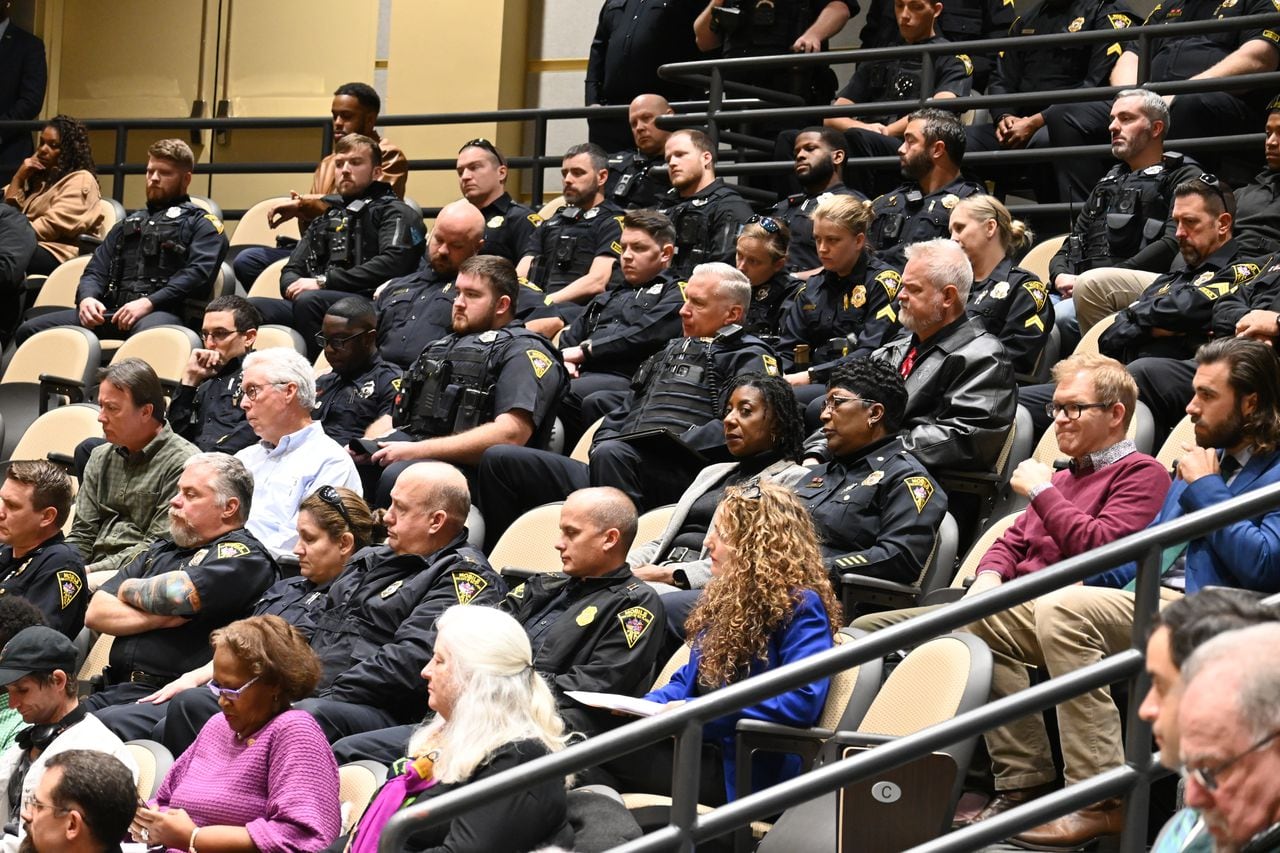âPolitical aspirationsâ of Alabama AG cited as a concern over police ordinance review in Mobile
The president of the Mobile City Council said Tuesday he has concerns about forwarding two policing ordinances to Attorney General Steve Marshall, citing the state’s top law enforcement officer’s potential future political aspirations as an issue.
“I am pro-policing and pro-blue, but from my understanding and from several calls I got this past week, the AG is very pro-blue and has political aspirations for the future and is looking for police departments to back him,” Council President C.J. Small told AL.com after Tuesday’s council meeting. He added that questions over whether the council has the authority to pass ordinances addressing police policy “probably needs to go to court.”
Marshall, the 59-year-old Republican Attorney General who has embraced a “tough-on-crime” stance since taking over the office in 2017, is term limited and has been hinted as a possible candidate for other offices in 2026, including governor or Congress. His office did not respond to an immediate request for comment.
“I’m scared of setting a precedence for future council members based on someone playing the possibility of politics,” Small said.
Alabama Attorney General Steve Marshall speaks during a luncheon hosted by the Eastern Shore Republican Women on Thursday, Sept. 14, 2023, at the Fairhope Yacht Club in Fairhope, Ala. In the background is John Wahl, chairman of the Alabama State GOP. (John Sharp/[email protected]).
If a lawsuit is filed, it could be potentially the second time in five years in which the city’s administration and council squares off against each other over a question of authority pertaining to the 39-year-old Zoghby Act — the Alabama state law that established Mobile’s current council-mayor form of government.
Small said, “I want to talk to my colleagues to see what the next steps should be, but I do have concerns sending this up to the Attorney General.”
City Attorney Ricardo Woods and the council’s attorney Michael Linder are scheduled to meet later in the week to discuss the next steps.
Small and other council members including Councilman William Carroll have expressed concerns over how a letter to Marshall’s office would be worded over the question about the legality of the ordinances.
“Anyone can send stuff to the AG,” he said. “But we didn’t want the administration to send anything without the council seeing exactly what it will say.”
Candace Cooksey, a spokeswoman to Mobile Mayor Sandy Stimpson, said “it’s very important” that council members are “comfortable with the phrasing of the request” forward to the Attorney General’s office.
She said the city is not asking Marshall to “to weigh in on the policies outlined” in the ordinances.
“We are seeking clarification on whether the council has the authority under state law to direct these polices via a city ordinance,” Cooksey said.

A large contingent of Mobile police attend the Mobile City Council meeting on Tuesday, Dec. 12, 2023, at Government Plaza in Mobile, Ala.John Sharp/[email protected]
The council voted 5-2 last week to postpone for 30 days a decision on what to do with two separate ordinances related to policing during a meeting that was attended by approximately 50 uniformed police officers.
The two ordinances do not go above and beyond establish Alabama state law or city policy, but they do the following:
- Ban no-knock search warrants and pre-dawn raids, something which is already being done as a result of an order by Mayor Sandy Stimpson last month after a tragic Nov. 13 pre-dawn raid in which a 16-year-old – who was not the person police were looking for – was shot and killed. The bans include limited exceptions.
- A requirement for authorities who deny the release of police-worn body cam footage to provide a legal reason for the denial under Alabama law, similar to the provisions that are currently in place through a new state law enacted on Sept. 1.
The council’s decision was to wait until Jan. 11, before reconsidering each ordinance that surfaced in November amid a rash of complaints over policing in Mobile during the past several months.
Chief of Staff James Barber said it is up to the council to decide if the ordinances should be forwarded to Marshall for consideration on whether the violate the 1985 Zoghby Act, the Alabama state law that established Mobile’s current form of government.
“Mayor Stimpson supports the end goal of both proposed ordinances and has already taken steps to implement similar policies int he Mobile Police Department’s regular operations,” Cooksey said. “We fully support the council’s objectives; we just want to ensure that the City of Mobile is following the letter of the law.”
She added, “Providing clarity on a constitutional issue is one of the many responsibilities of the AG’s office, and getting guidance on this matter will help us navigate similar questions about state law in the future.”
The Zoghby Act, on its surface, gives the council legislative ability to set policy, but also limits how much authority elected officials have over subordinates of the mayor’s administration. The police department falls under the mayor’s oversight.
Small’s comments puts the Zoghby Act back in the spotlight again. The last time there was a legal dispute over the 1985 law was in 2018, when Stimpson’s administration sued the council over the handling of a personnel matter, accusing the city’s legislative branch of “illegal” hiring practices under the Zoghby Act.
